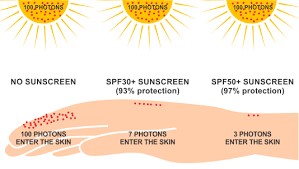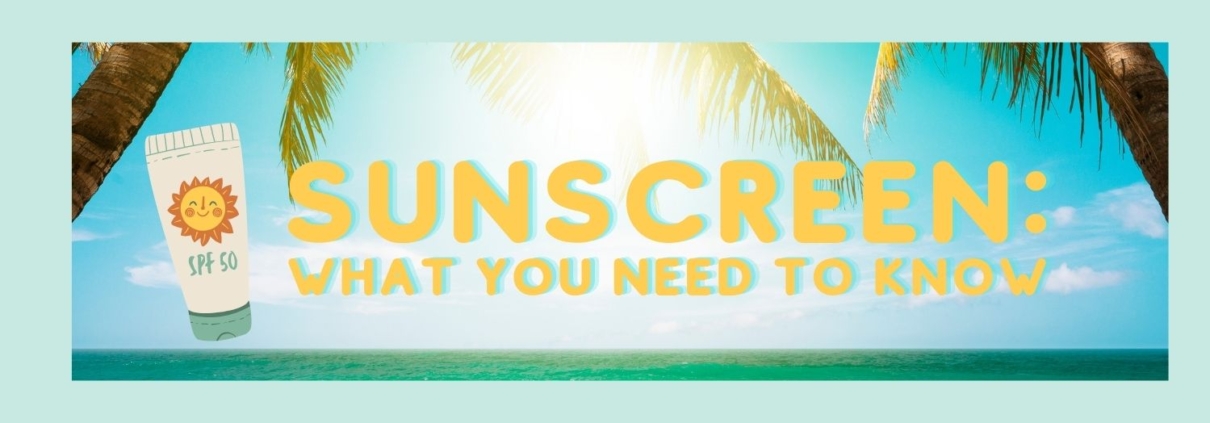Let’s unravel the mystery of SPF: Sun Protection Factor
Summer is here and it’s time to talk about protecting yourself. Now, you should be using an SPF sunscreen year-round, but most people do not. Moreover, we spend more time outdoors in the summer, and the days are longer too.
SPF stands for sun protection factor. The numbers on a sunscreen product indicate how well the product protects you against sunburn. This does not determine how long you can stay in the sun. But it does define how long it takes the sun’s high-energy photons to redden untanned skin with sunscreen on it versus without sunscreen.
Now let’s get a little nerdy and explore what it is you are protecting your skin from when you lather up with SPF.
Sunlight is beaming down via small packets of energy called photons. When an ultraviolet photon heads our way, it is in two types, called UVA and UVB. UVA occurs year-round and UVB occurs more in the spring through fall, and mostly between 10 a.m. and 4 p.m.
UVA has a longer wavelength and is associated with skin aging. UVB has a shorter wavelength and is associated with burning. Both are proven to cause a risk for skin cancer. Check out the graphic below:

This is what you are protecting your skin against when you use sunscreen. When photons strike your skin, they create free radicals and damage your DNA. This will cause a sunburn in a few minutes to hours, and over years, causes premature aging — and let’s not forget increased risk of skin cancer.
Higher SPFs do give you better sun protection, but if you are not properly applying it, it lowers your sun protection. You can use SPF 30, apply it liberally, and re-apply it frequently and get better protection than if you applied a very thin layer of SPF 50 and didn’t reapply.
Each individual needs SPF, but each of us handles the sun’s rays differently too. A red-haired, fair-skinned person would need to be more concerned than someone with more melanin in their skin. But, no matter our skin tone we all need protection from the sun. SPFs are protecting our skin, DNA and longevity.
If you read our blog post last summer about chemical vs. mineral sunscreens, you know that mineral sunscreens can protect you from both UVA and UVB light. The Eminence Organics sunscreen that we carry at The Floating Lotus is a mineral sunscreen, offering both UVA and UVB protection.
If you choose a chemical sunscreen, you will need to look for the words “broad spectrum.” This will give you UVA and UVB protection.
So, grab your sunglasses, hat, and water bottle, and let the summer good times roll! And stop by The Floating Lotus for sunscreen!




Leave a Reply
Want to join the discussion?Feel free to contribute!